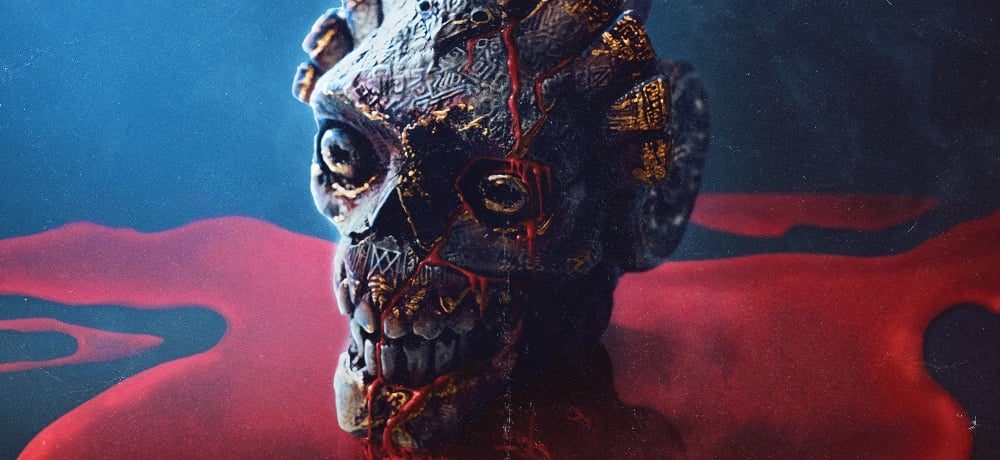





It is a pet peeve of mine when people argue that a work of artistic cinema or literature cannot be placed in the horror genre. Horror is a spectrum—on one end we have cheesy, exploitative entertainment; on the other, tales that evoke harrowing combinations of repulsion, disgust, and despair. Though some may disagree, I believe Cormac McCarthy’s mind-meltingly disturbing Blood Meridian belongs on the latter end of the horror scale, and for insidious reasons.
The plot for Blood Meridian could easily have been turned into an action-Western had another author taken it on. We start with The Kid as he travels across the American Southwest, eventually joining a band of mercenaries who set out to destroy an Apache tribe for money. But this is no simple odyssey. It is a vision of sun-bleached, blood-stained hell. McCarthy uses the fundamentals of Western tropes to create a bleak and honest vision of American conquest. In this way it becomes a horror story—not in the traditional genre way, but because it leaves the reader with a sense of hopelessness.
It could be said that the novel’s main villain is the Judge, a hairless giant who rules over the gang of mercenaries with godlike power. This character is best defined, for me, by his opinion that birds should all be kept in cages, because any free life is an offense to him. His actions are driven by this motto. He takes great joy in killing, but also in allowing life, because he sees all life as something under his control. The Judge operates on an inflated idea of manifest destiny—not only should you take what’s yours, but it already belongs to you, so taking is really reclaiming. McCarthy places this philosophy at the core of heinous and sadistic deeds, providing them with some form of horrific motive.
While the Judge’s attitude is specific and extreme, it feels definitive of the mindset that caused the genocide of indigenous Americans in the first place. With a Christian sense of moral superiority at their side, those original murderers swept across the land in a wave of destruction, leaving no life untouched—even if it was “spared.” Like the Judge, settlers took what they saw as theirs by divine right, and destroyed anything that combated their idea of that rightness. This land is built on that idea, and the horrific bloodshed that it caused.
McCarthy’s use of violence seems extreme because of its constant presence and excessiveness—sexual brutality and violence against children abounds—but when one thinks of historical fact, it seems awfully accurate. McCarthy evokes horror through the violence, and within the context of the setting and plot, he creates an emotional depiction of genocide, albeit perhaps not intentionally. The novel itself does nothing to condemn the genocide of indigenous peoples in America, at least not directly. Yet, as the story progresses, it seems to be a more honest representation of that cruelty than I have seen before.
Horror is certainly an entertaining genre, but it is also an emotion, and a powerful one. What else would the indigenous people have felt as their land was destroyed? McCarthy may not have intended this, but his novel left me feeling disgusted, harrowed, and full of despair. I associate those feelings with the time period and setting. It is impossible to ignore that much of the violence is done against non-white people, who are not given a voice, and who are often wholly unnecessary to the objectives of the characters. By the end, this violence has consumed every character, leaving no one alive. McCarthy does not entertain with his blood and gore; instead, he uses it to brutalize the reader’s mind, making it impossible to deny the horror of the events.
By calling Blood Meridian a horror novel, however, I am running the risk of relegating its story to the realm of “fiction.” Of course, certain elements like the demonic Judge do come off as darkly absurdist or fantastic. One does not have to look far, though, to see the truth behind the fictional exaggeration. This story is horrific in its honesty about America’s foundation. It is even more disturbing to realize that this nightmare can seem fictional to begin with—history classes don’t explain the half of it. The violence that McCarthy describes is a reality, one that exists in our world today. Look no further than atrocities like those in Rwanda and Aleppo. When broadcasted on the news, they are distant events, atrocities that don’t affect us. Novels like Blood Meridian take those atrocities and make them real through their use of horror as an emotion. They are essential, because with that understanding, excuses can’t be made, and distant events may become immediate and no longer fictional.